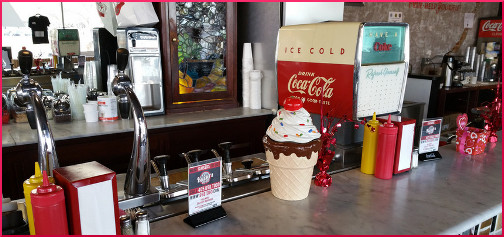 As 2014 drew toward its close, over half the American states had soda taxes. The city of Berkeley, California, became the first to successfully institute a tax on sugar-sweetened beverages (SSBs). Heartened by these advances, several other states were considering soda taxes of their own. One was Illinois, which, as Nathanael Johnson noted, was in severe budgetary trouble. Polling suggested that 65 percent of the state’s voters would support a soda tax that would make up for a $600 million Medicaid shortfall. The Illinois chapter of the American Academy of Pediatricians was in favor of legislation called the Healthy Eating and Active Living (HEAL) Act, whose history and current status can be found on an Illinois state website. For months, the bill has been painstakingly adding co-sponsors, one by one.
As 2014 drew toward its close, over half the American states had soda taxes. The city of Berkeley, California, became the first to successfully institute a tax on sugar-sweetened beverages (SSBs). Heartened by these advances, several other states were considering soda taxes of their own. One was Illinois, which, as Nathanael Johnson noted, was in severe budgetary trouble. Polling suggested that 65 percent of the state’s voters would support a soda tax that would make up for a $600 million Medicaid shortfall. The Illinois chapter of the American Academy of Pediatricians was in favor of legislation called the Healthy Eating and Active Living (HEAL) Act, whose history and current status can be found on an Illinois state website. For months, the bill has been painstakingly adding co-sponsors, one by one.
Apparently, bipartisan support can be gained for such taxes when the income is earmarked for medical care. But as we have seen, the voters are not always confident that the money raised by their good intentions will be channeled to the places where they want it to go.
Other places are trying a slightly different approach. The California city of Davis approved an ordinance to make water and milk the “default options” for children’s meals served in restaurants and fast food establishments. In practice, this means children’s parents can still order soda for them, but the servers are not supposed to suggest it. If soda is promoted as a first choice, the management gets a talking-to, and if it happens again, a $100 fine can be levied.
The Junk Food Epidemic
Obesity and diabetes have become widespread, according to the Navajo Area Indian Health Service. The Navajo nation became the first part of the United States to impose a tax on junk food. On April 1, 2015, the 2 percent tax went into effect, coupled with the elimination of an already-existing tax on vegetables, fruits, and other healthful foodstuffs. Sabrina Toppa reported for Time:
Revenues from the sin tax will reportedly be channeled toward community wellness projects like farmer’s markets, vegetable gardens and greenhouses in the 27,000 sq. mi. of Navajo reservation spanning from Arizona and New Mexico to Utah…With nearly half of the Navajo youth population facing unemployment and 38{0d9774446e5c1c486b14bfd00f317fb53ff44ec6f4ca4ad04b1a0b82436e9f13} of the Navajo reservation at the poverty level, supporters say the act may serve as a prototype for sin taxes to curb obesity in low-income communities across the U.S.
Meanwhile, over in the United Kingdom, relentlessly activist chef Jamie Oliver is at it again, this time sponsoring a petition meant to convince the government to tax SSBs. The petition now has gathered well over 125,000 signatures. Such a tax could bring in £1 billion per year, which if used properly could make a slight dent in the nation’s annual £9 billion expenditure on diabetes treatment.
Going at the problem from the opposite end, hoping to eliminate rather than create a tax, an Irish politician has called upon the ministry of Transport, Tourism and Sport to expand the successful Cycle to Work program by omitting the tax on bicycles and cycling equipment purchased for school children.
Your responses and feedback are welcome!
Source: “Soda taxes bubbling up all over,” Grist.org, 05/28/15
Source: “In this city, offering a kid a soda is about to be illegal,” SFGate.com, 05/29/15
Source: “This Place Just Became the First Part of the U.S. to Impose a Tax on Junk Food,” Time.com, 03/30/15
Source: “Jamie Oliver’s Sugar Tax Petition Has Had HOW Many Signatures?!,” GraziaDaily.co.uk, 09/08/15
Source: “Labour Senator calls for tax-free bikes for Irish school kids,” bikebiz.com, 07/21/15
Image by Kool Cats Photography
(c) Childhood Obesity News – Read entire story here.